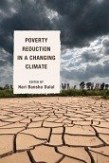Integrated Forestry Development in the Middle East and North Africa
This Policy Note discusses the status of
Forestry in the Middle East and North Africa Region (MNA) of
the Bank. The Policy Note is a product of the FAO Investment
Center in Rome, the International Food Policy Research
Institute (IFPRI) and the Bank. Experience in natural
resource management shows that to adequately address
sustainable development, solutions must go beyond any single
sector, and be cross-sectoral. They must also go beyond






